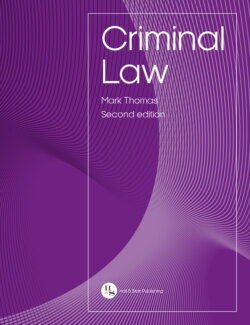Читать книгу Criminal Law - Mark Thomas - Страница 30
На сайте Литреса книга снята с продажи.
1.6.3.3 International law
ОглавлениеAccording to the website of the United Nations (<www.un.org>), international law ‘defines the legal responsibilities of States in their conduct with each other, and their treatment of individuals within State boundaries’. International law sets rules and policies that govern relations between international states and their citizens.
Beginning with a membership of 51, the United Nations, amongst other bodies, is responsible for addressing the needs of 193 Member States. According to Article 2, para 1 of the UN Charter, international law is ‘based on the principle of the sovereign equality of all its Members’. Each Member State is thus considered equal and not subject to any form of supranational authority without the consent of the Member State concerned.
International law can be considered as relevant to the domestic criminal law in two respects:
•International criminal offences: The Rome Statute 1998 had the effect of creating the International Criminal Court (ICC) and defining core international criminal offences, such as genocide, war crimes and crimes against humanity. These crimes were incorporated into domestic law by the International Criminal Court Act 2001. These offences are not considered in any further detail in this text, but for a full treatment, you may wish to consult, for example, Guilfoyle, International Criminal Law (OUP, 2016).
•Influence on domestic law: Given that the majority of offences lack any international sphere (eg a battery is unlikely to have any international implications), domestic law rarely integrates with international law and conventions. However, certain offences, for example fraud and blackmail, can be committed on such a large scale that their relevance moves towards the international remit.
